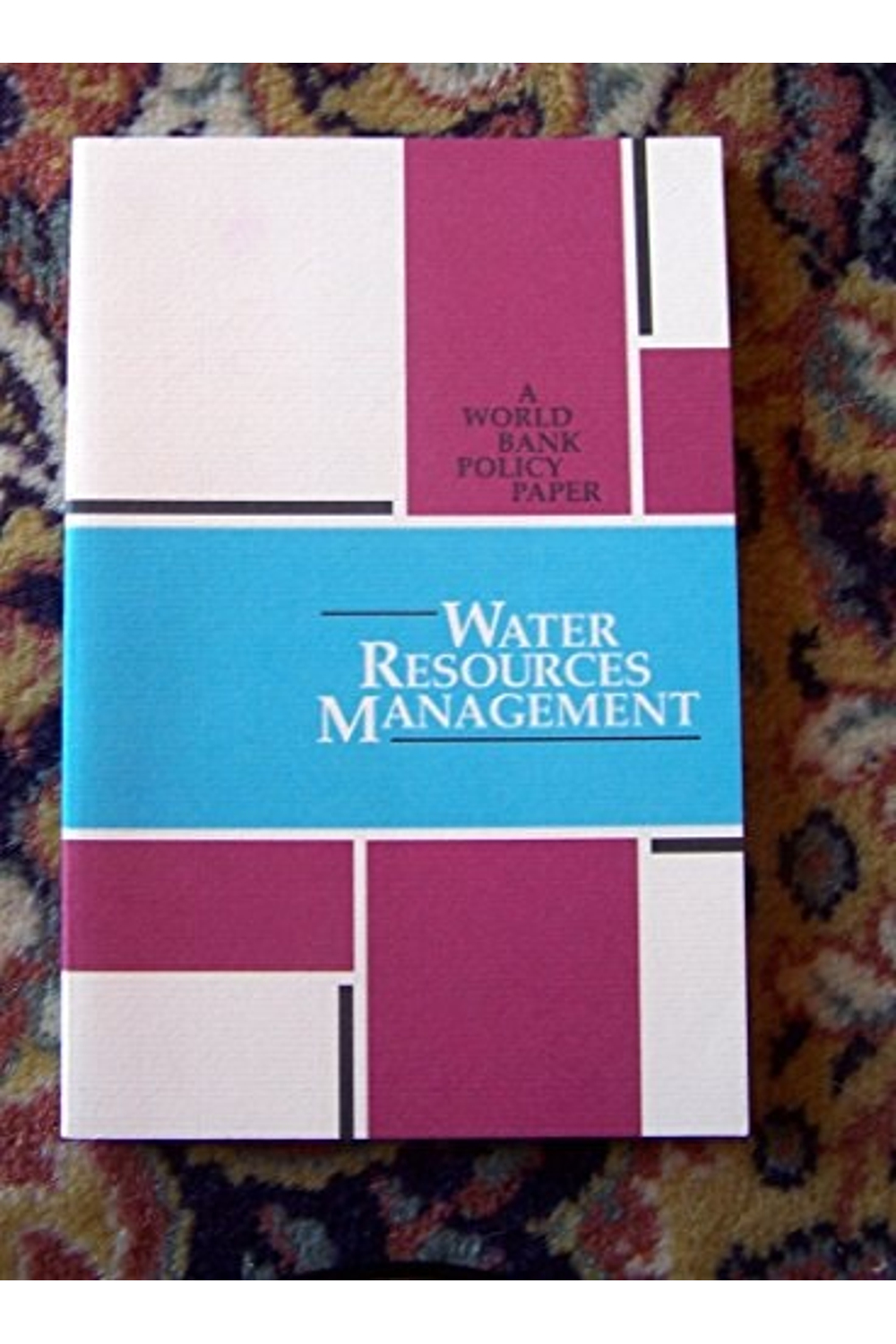Explore the complexities of global water management with “Water Resources Management (A World Bank Policy Paper).” Published in 1993, this key document from the World Bank offers invaluable insights into the strategies and policies shaping sustainable water resource use. This paperback examines integrated water resources management (IWRM), focusing on equitable access, scarcity solutions, and environmental protection. Although a previously owned copy, making it unique, its ISBN numbers are 9780821326367 and 0821326368 for easy reference. Discover how early frameworks shaped current approaches. A cornerstone for researchers and policymakers.
Water Resources Management (A World Bank Policy Paper)
13,15 $
In stock
Description
Washington, D.C. 21 cm. 140 p. Encuadernacin en tapa blanda de editorial ilustrada. Idioma Ingls. Includes bibliographical references (pages 135-140). Print version record. Print Water Resources Management. Washington, D. C. : World Bank, 1993 (DLC) 93031793. A World Bank policy paper .. Este libro es de segunda mano y tiene o puede tener marcas y seales de su anterior propietario. 9780821326367; 0821326368
Delve into the crucial field of global water resources management with this insightful World Bank policy paper. Titled "Water Resources Management (A World Bank Policy Paper)," this 1993 publication offers a comprehensive look at the challenges and opportunities in managing this vital resource worldwide. Published by the World Bank, this paperback edition presents a detailed analysis of water resource issues, strategies, and policies relevant to sustainable development. This book, spanning 140 pages, explores various facets of water management, potentially including topics such as: * **Integrated Water Resources Management (IWRM):** Examining holistic approaches to managing water across different sectors and stakeholders. This might include river basin management, water allocation strategies, and the integration of environmental considerations. * **Water Policy and Governance:** Analyzing the role of governments and institutions in shaping water policy, promoting efficient water use, and ensuring equitable access to water resources. It likely discusses regulatory frameworks, pricing mechanisms, and community participation in water management. * **Water Scarcity and Drought Management:** Addressing the increasing challenges of water scarcity in many regions, exploring strategies for drought preparedness, water conservation, and demand management. The book may delve into the impacts of climate change on water availability. * **Water Quality and Pollution Control:** Investigating the sources and impacts of water pollution, discussing strategies for pollution prevention, wastewater treatment, and the protection of water sources. It may also touch upon the role of industrial and agricultural practices in water quality degradation. * **Water Infrastructure and Investment:** Examining the need for investment in water infrastructure, including dams, irrigation systems, and water supply networks. It likely discusses the economic and social benefits of such investments and the challenges of financing and managing them effectively. * **Water and Agriculture:** Exploring the critical link between water and food security, discussing strategies for improving irrigation efficiency, promoting water-saving agricultural practices, and managing the environmental impacts of agriculture on water resources. * **Water and Urban Development:** Addressing the challenges of providing safe and reliable water supplies to growing urban populations, discussing issues such as water demand management, leakage reduction, and the integration of water and sanitation services. Given its age, while the core principles remain relevant, some of the specific data and case studies may reflect the context of the early 1990s. However, the book provides valuable historical context for understanding the evolution of water management approaches and the ongoing challenges in the sector. The inclusion of bibliographical references (pages 135-140) makes it a great research point. This is a second-hand copy, so it may bear marks or signs of previous ownership, adding to its unique history. The ISBN numbers are 9780821326367 and 0821326368 for easy reference. This "Water Resources Management (A World Bank Policy Paper)" is an essential addition to the libraries of researchers, policymakers, and anyone interested in understanding the complexities of managing the world's precious water resources. A valuable historical document offering insight into established frameworks.
Additional information
| Binding | |
|---|---|
| Condition | |
| ISBN-10 | 0821326368 |
| ISBN-13 | 9780821326367 |
| Language | |
| Pages | 140 |
| Publisher | |
| Year published | |
| Weight | 227 |
SKU: G-9780821326367-3
Categories: Engineering, Engineering & Transportation, Nature & Ecology, Science & Math, Technology
Related products
- Additional information
- Currencies
- USD – United States dollar
- EUR – Euro
- GBP – Pound sterling
- CNY – Chinese yuan
- BRL – Brazilian real
- MXN – Mexican peso
- JPY – Japanese yen
- PHP – Philippine peso
- THB – Thai baht
- PLN – Polish złoty
- CAD – Canadian dollar
- MYR – Malaysian ringgit
- AUD – Australian dollar
- TWD – New Taiwan dollar
- CZK – Czech koruna
- SEK – Swedish krona
- HUF – Hungarian forint
- ILS – Israeli new shekel
- CHF – Swiss franc
- HKD – Hong Kong dollar
- DKK – Danish krone
- SGD – Singapore dollar
- NOK – Norwegian krone
- NZD – New Zealand dollar





